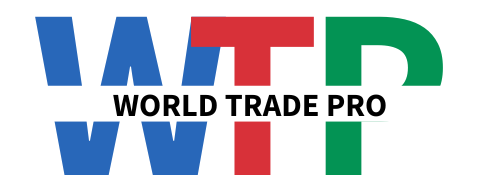Who is the largest corn suppliers in the world?
Quote from chief_editor on September 24, 2023, 6:57 pm
The international corn trade is dominated by a handful of massive multinational agribusinesses. With corn being one of the most widely produced crops globally, the top suppliers rake in billions in revenues annually exporting maize worldwide. Here are the 5 biggest corn suppliers fueling the global corn trade based on annual revenues:
- Cargill - The largest privately held corporation in the U.S., Cargill is the top corn supplier with revenues over $114 billion in 2020. It handles over 150,000 tons of corn daily, owning over 200 processing plants internationally. Cargill has major corn operations across the Americas, exporting bulk shipments worldwide.
- Archer-Daniels-Midland (ADM) - Ranking second is this Chicago-based food processing giant, reporting revenues of $64.3 billion in 2020. ADM produces around 160,000 tons of corn per day, operating 500 crop procurement facilities globally. ADM exports corn, corn sweeteners, ethanol, animal feed and other by-products.
- Louis Dreyfus Company - This Netherlands-headquartered commodity trader produces approximately 140,000 tons of corn daily, primarily across the Americas. It reported total sales of $33.6 billion in 2019 from its global agriculture, food processing and commodities distribution business.
- Bunge Limited - An agribusiness powerhouse headquartered in St. Louis, Bunge makes over $41 billion in annual sales. It has numerous corn processing plants in the U.S. and Brazil, exporting corn to food manufacturers worldwide. Bunge is also a major supplier of soybeans globally.
- Syngenta - Unlike the other companies, this Swiss agritech giant focuses on corn research and patented seeds. Syngenta’s high-tech hybrid corn seeds are widely used by farmers in the U.S., Brazil and China. Its 2019 corn seed sales reached around $2.36 billion globally.
Combined, these top 5 corn suppliers control a significant chunk of the worldwide corn trade valued at over $140 billion annually. They leverage technologies like GMO seeds, advanced harvesting equipment, logistics infrastructure and global buyer relationships to maintain dominance.
However, critics argue such concentration has squeezed smaller players and farmers worldwide. The supersized corn suppliers also face rising competition from large corporations in emerging supplier markets like Argentina, Ukraine and South Africa. Their leadership positions will depend on continued agricultural innovations to boost yields.
Nonetheless, the scale and distribution power of companies like Cargill and ADM will likely ensure they remain the chief beneficiaries of the massive and growing global corn trade. Learning to balance financial success with sustainable practices will be key to their long-term future in corn production and provision for international markets.
In summary, a select group of corn-focused corporate titans currently dominate the production, trade and processing of one of the world's most vital cereal crops. Their economies of scale and global reach looks set to preserve their status as the biggest beneficiaries of maize for years to come.
The international corn trade is dominated by a handful of massive multinational agribusinesses. With corn being one of the most widely produced crops globally, the top suppliers rake in billions in revenues annually exporting maize worldwide. Here are the 5 biggest corn suppliers fueling the global corn trade based on annual revenues:
- Cargill - The largest privately held corporation in the U.S., Cargill is the top corn supplier with revenues over $114 billion in 2020. It handles over 150,000 tons of corn daily, owning over 200 processing plants internationally. Cargill has major corn operations across the Americas, exporting bulk shipments worldwide.
- Archer-Daniels-Midland (ADM) - Ranking second is this Chicago-based food processing giant, reporting revenues of $64.3 billion in 2020. ADM produces around 160,000 tons of corn per day, operating 500 crop procurement facilities globally. ADM exports corn, corn sweeteners, ethanol, animal feed and other by-products.
- Louis Dreyfus Company - This Netherlands-headquartered commodity trader produces approximately 140,000 tons of corn daily, primarily across the Americas. It reported total sales of $33.6 billion in 2019 from its global agriculture, food processing and commodities distribution business.
- Bunge Limited - An agribusiness powerhouse headquartered in St. Louis, Bunge makes over $41 billion in annual sales. It has numerous corn processing plants in the U.S. and Brazil, exporting corn to food manufacturers worldwide. Bunge is also a major supplier of soybeans globally.
- Syngenta - Unlike the other companies, this Swiss agritech giant focuses on corn research and patented seeds. Syngenta’s high-tech hybrid corn seeds are widely used by farmers in the U.S., Brazil and China. Its 2019 corn seed sales reached around $2.36 billion globally.
Combined, these top 5 corn suppliers control a significant chunk of the worldwide corn trade valued at over $140 billion annually. They leverage technologies like GMO seeds, advanced harvesting equipment, logistics infrastructure and global buyer relationships to maintain dominance.
However, critics argue such concentration has squeezed smaller players and farmers worldwide. The supersized corn suppliers also face rising competition from large corporations in emerging supplier markets like Argentina, Ukraine and South Africa. Their leadership positions will depend on continued agricultural innovations to boost yields.
Nonetheless, the scale and distribution power of companies like Cargill and ADM will likely ensure they remain the chief beneficiaries of the massive and growing global corn trade. Learning to balance financial success with sustainable practices will be key to their long-term future in corn production and provision for international markets.
In summary, a select group of corn-focused corporate titans currently dominate the production, trade and processing of one of the world's most vital cereal crops. Their economies of scale and global reach looks set to preserve their status as the biggest beneficiaries of maize for years to come.

